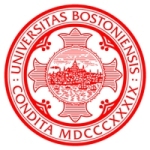Philippe Fauchet, University of RochesterSilicon Photonic Crystal Microcavity BiosensorsAbstract:We discuss a versatile biosensing platform that can be used for detecting biological targets over a wide range of sizes, from DNA strands to proteins and viruses. The devices are photonic crystal (PhC) microcavities made in silicon. The optical transmission/reflection of the 1-D (porous silicon) and 2-D (SOI) structures is controlled by the geometry and by the refractive index inside the pores or air holes. After binding of the desired target inside the pores or air holes, the changes in transmission/reflection can readily be measured and quantified. One of main advantages of the PhC microcavities is that sensing takes place where the optical field intensity is very large. In this presentation, we will examine how to optimize the material and device design to maximize sensitivity subject to various constraints such as the physical size of various targets and the need for low false positive counts. The performance of actual devices will be discussed and compared to theory. Examples from a wide range of applications involving targets such as proteins will be presented. Steps toward integration in microfluidic systems will be described and a comparison with other methods will be presented. BiographyPhilippe M. Fauchet is a Distinguished Professor of Electrical and Computer Engineering at the University of Rochester where he also is a Professor of Optics, Biomedical Engineering, and Materials Science, and a Senior Scientist at the Laboratory for Laser Energetics. He received his Engineer’s Degree from Faculté Polytechnique de Mons in Belgium in 1978, an M.S. in Engineering from Brown University in 1980, and, in 1984, a Ph.D. in Applied Physics from Stanford University, where he stayed as an IBM Post-doctoral Fellow and Acting Assistant Professor for one year before he took a faculty position in Electrical Engineering at Princeton University. Dr. Fauchet’s current research interests include nanoscience and nanotechnology with silicon quantum dots, silicon-based LEDs and lasers, semiconductor optoelectronics and devices, optical interconnects, silicon-based biosensors, the silicon/biology interface, and optical diagnostics. In 1998, he founded the Center for Future Health, a multidisciplinary laboratory where engineers, physicians, and social scientists develop affordable technology that can be used at home to keep individuals independent and healthy. Dr. Fauchet received an IBM Faculty Development Award in 1985, an NSF Presidential Young Investigator Award in 1987, an Alfred P. Sloan Research Fellowship in 1988, and the 1990-1993 Prix Guibal & Devillez for his work on porous silicon. He has chaired many conferences and workshops, is the author of over 350 publications, has edited nine books, and is a Fellow of the Optical Society of America, the American Physical Society, and the Institute of Electrical and Electronic Engineers.
|
|||||



